しりません is often believed to be the equivalent of “I don’t know” in English, but しりません doesn’t get perceived very well. This is why.
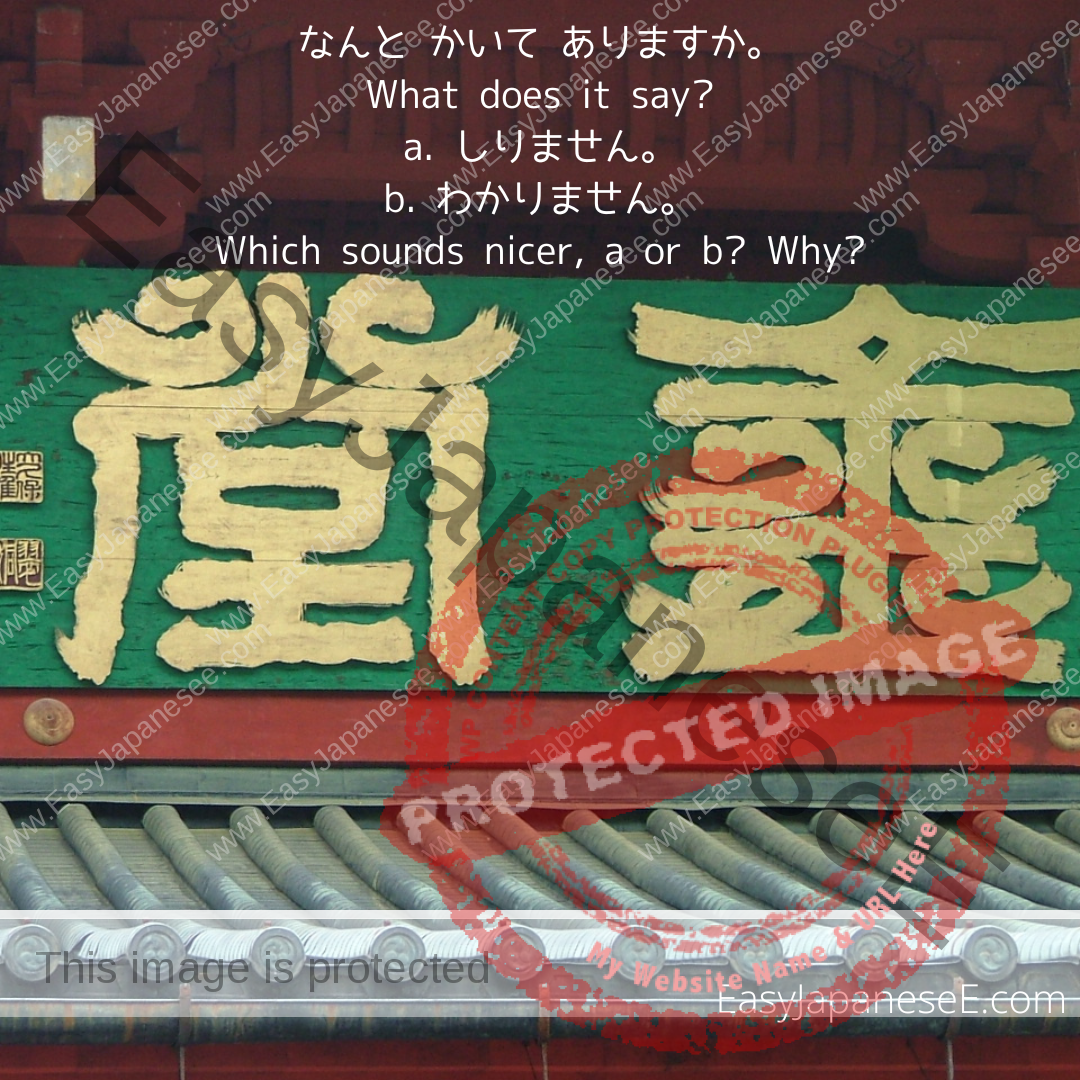

しりません is often believed to be the equivalent of “I don’t know” in English, but しりません doesn’t get perceived very well. This is why.

Reading a #number in a foreign language can sometimes be tricky. This post explains how to read a temperature in Japanese.

Yesterday I talked about ~ず(に)which means “without doing ~。” 親おや= a parent, 知しら= to know, ず = NOT, so the…
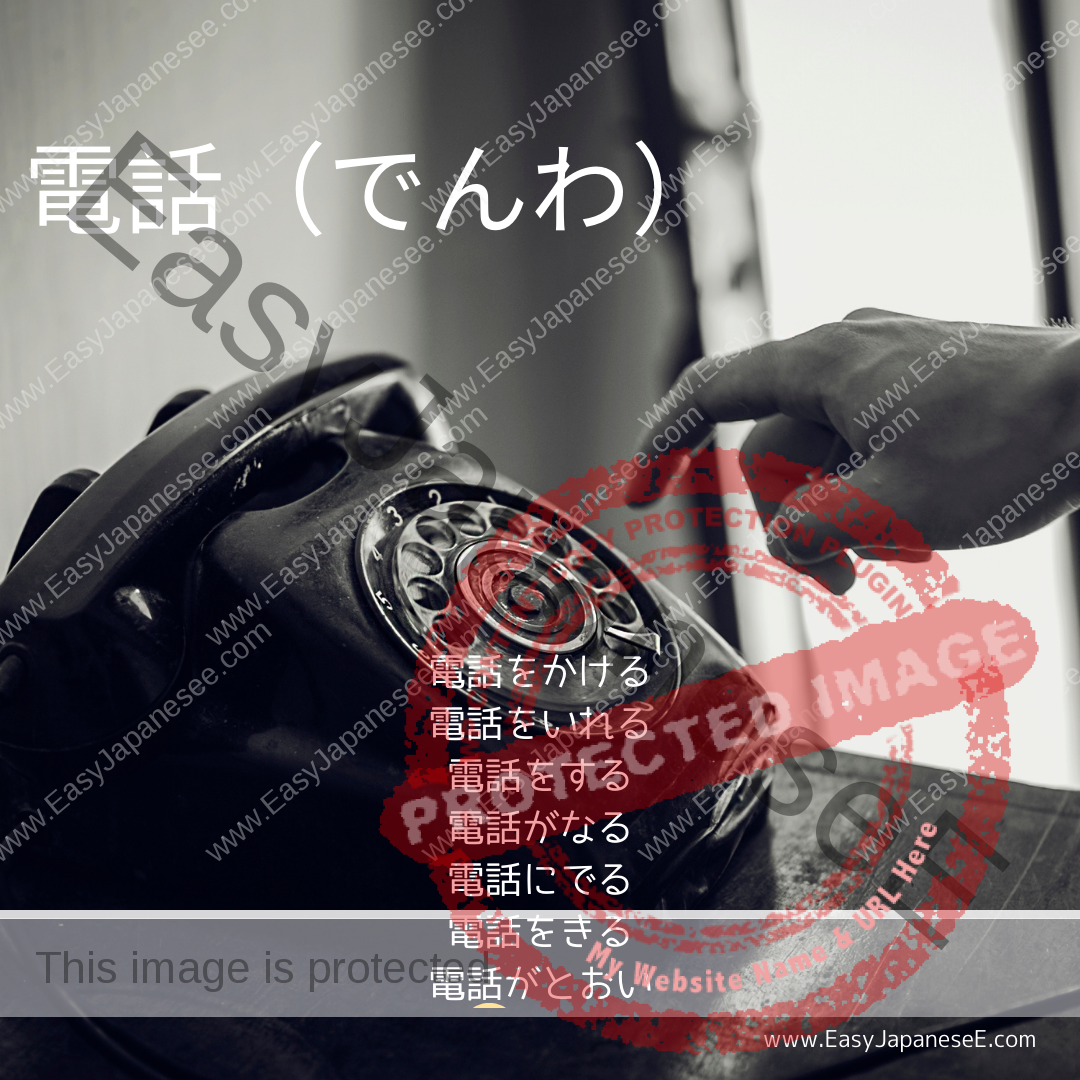
電話(でんわ) is a part of our life and we use it all the time, but do you know these expressions related…
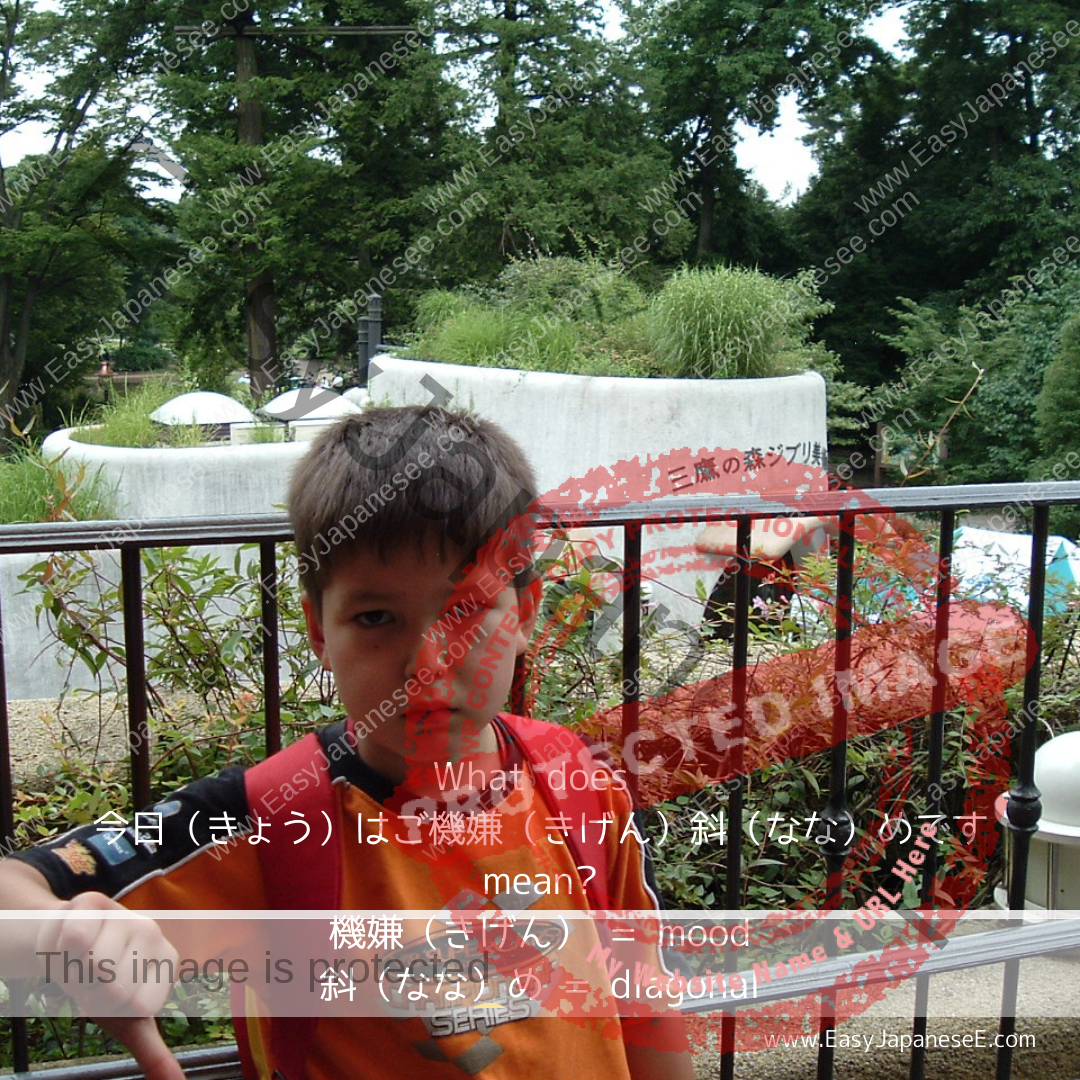
What does今日(きょう)はご機嫌(きげん)斜(なな)めですmean? 機嫌(きげん) = mood斜(なな)め = diagonal usage of 機嫌(きげん) 機嫌(きげん)がいい = to be in a good mood機嫌(きげん)が悪(わる)い = to…
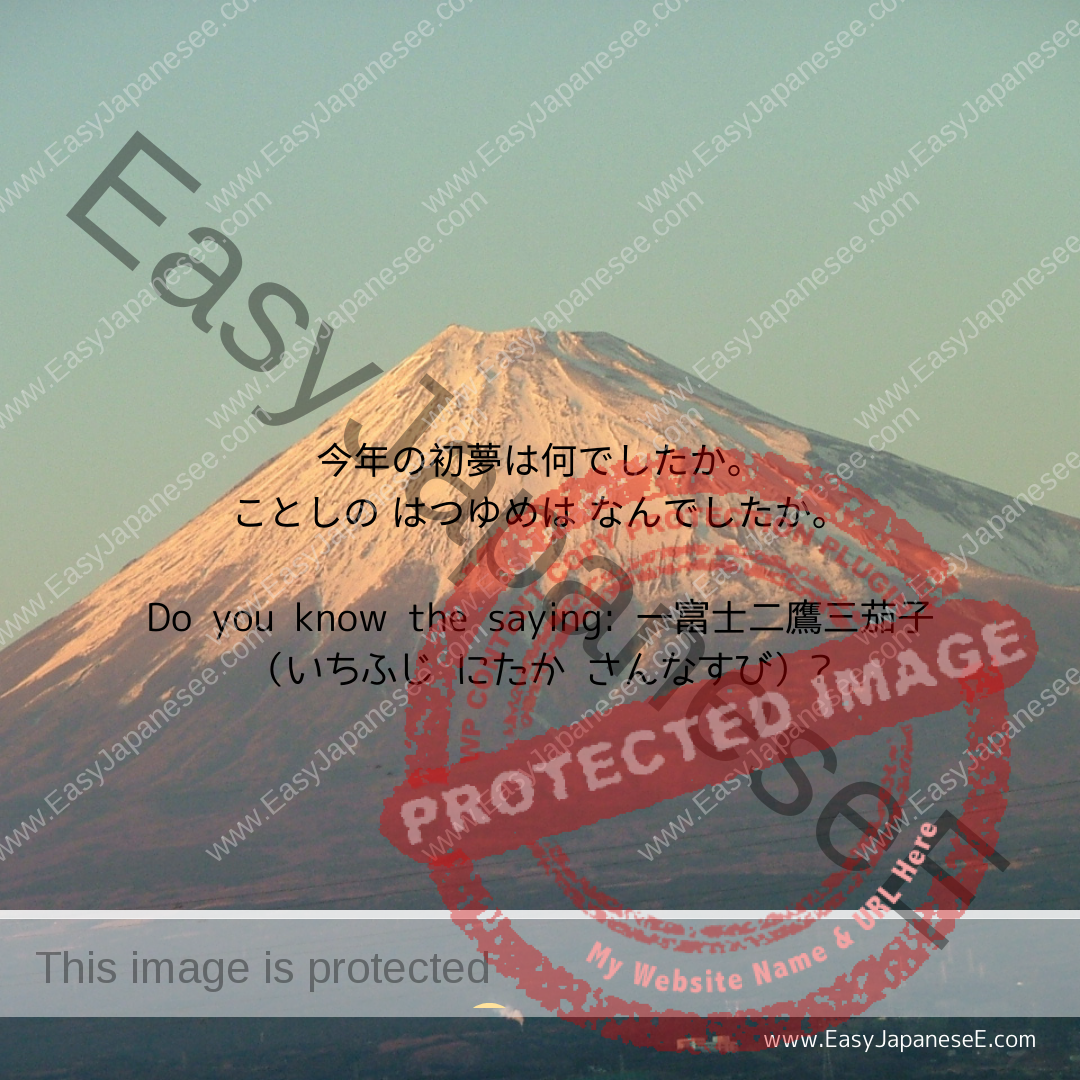
It is believed to be auspicious if Mt. Fuji, a hawk or an eggplant appeared in you first dream of a year. Did any of that appear in your dream this year?
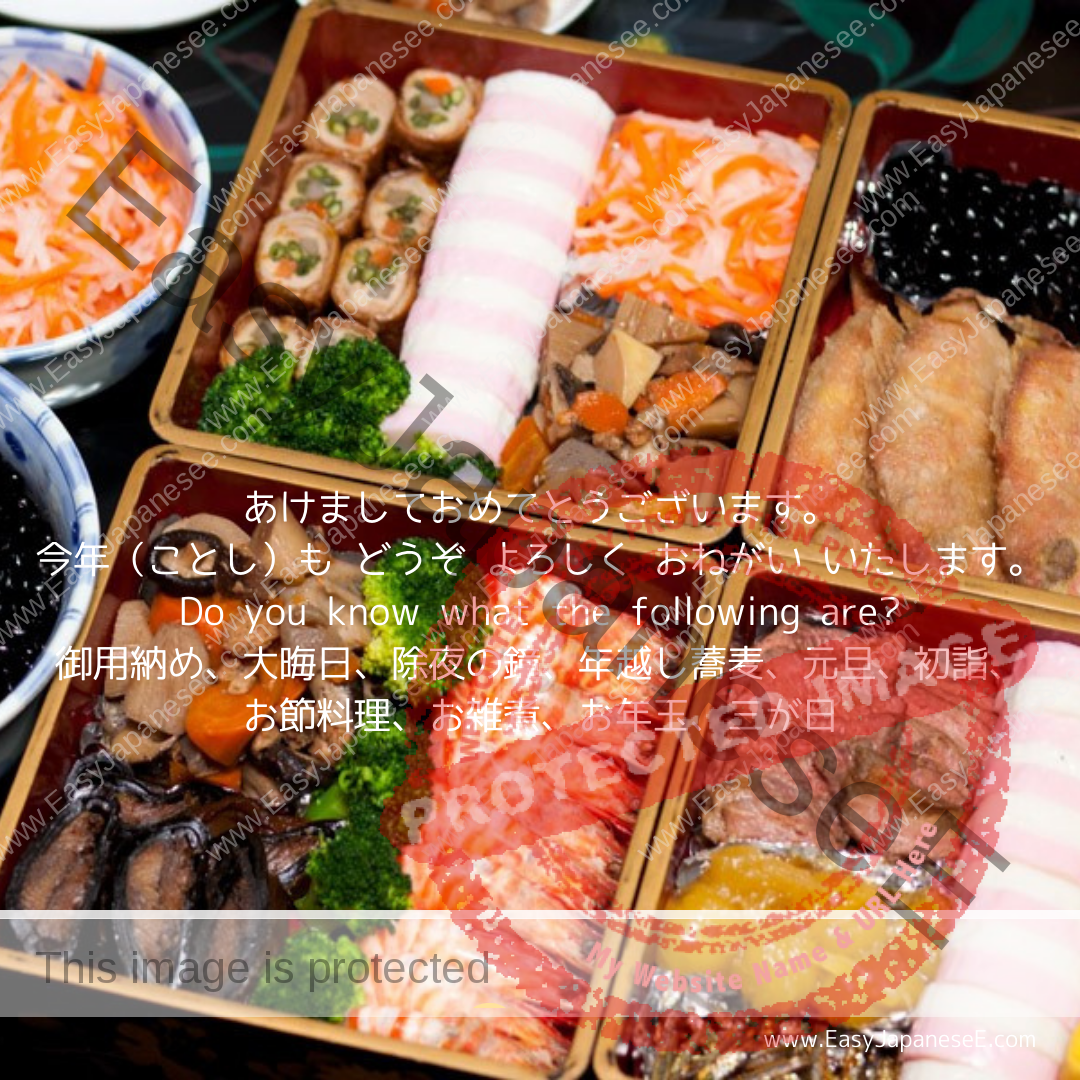
あけましておめでとうございます。今年もよろしくお願いいたします。 A Happy New Year.I’m looking forward to working with you this year again! As today is the first day…
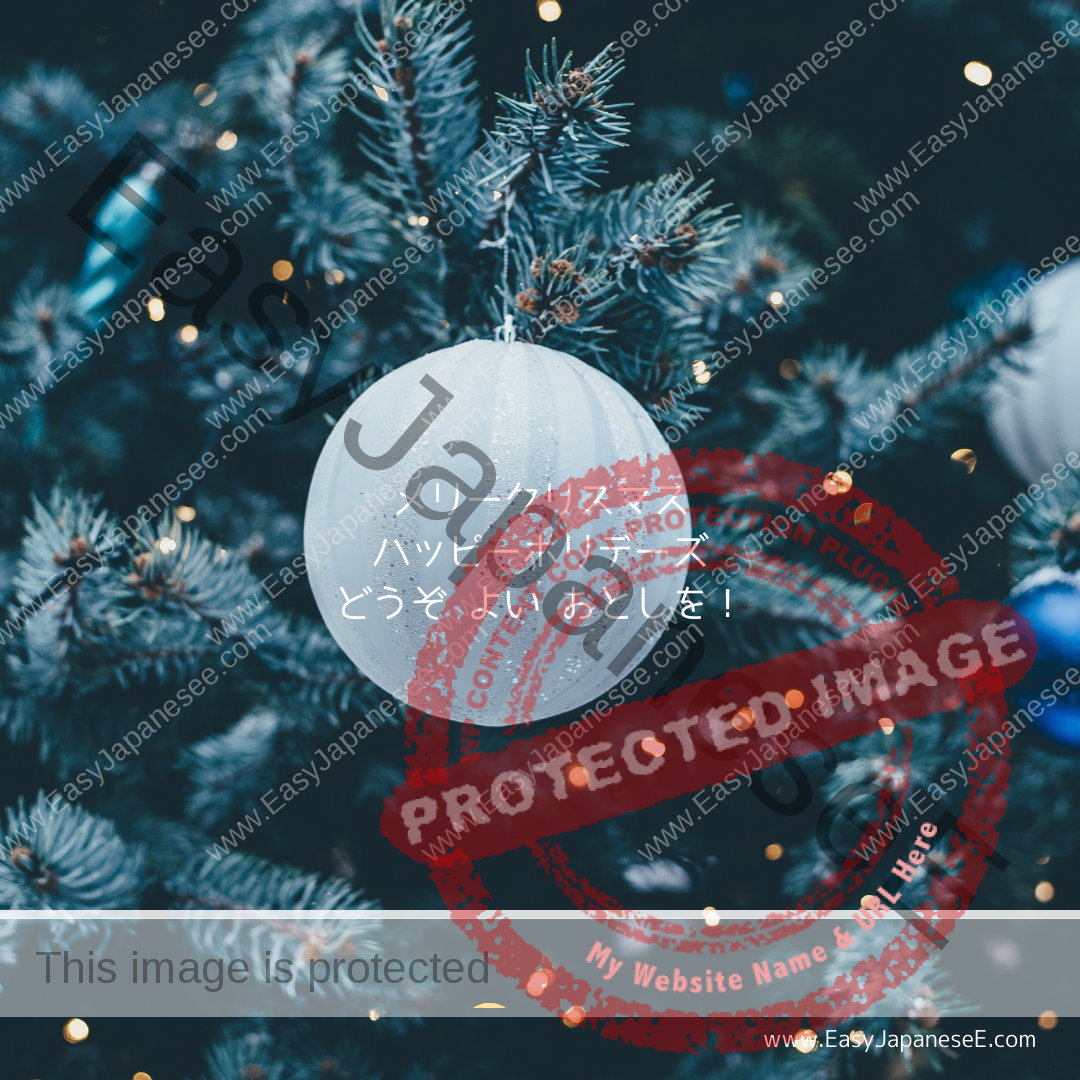
Today is Christmas Eve. Here in Australia, people are frantically preparing for Christmas. Christmas and Boxing Day (26th) are both…
の犬.png)
Last 2 Fridays, I talked about expressions with a cat in it, so this week, I will do the same…
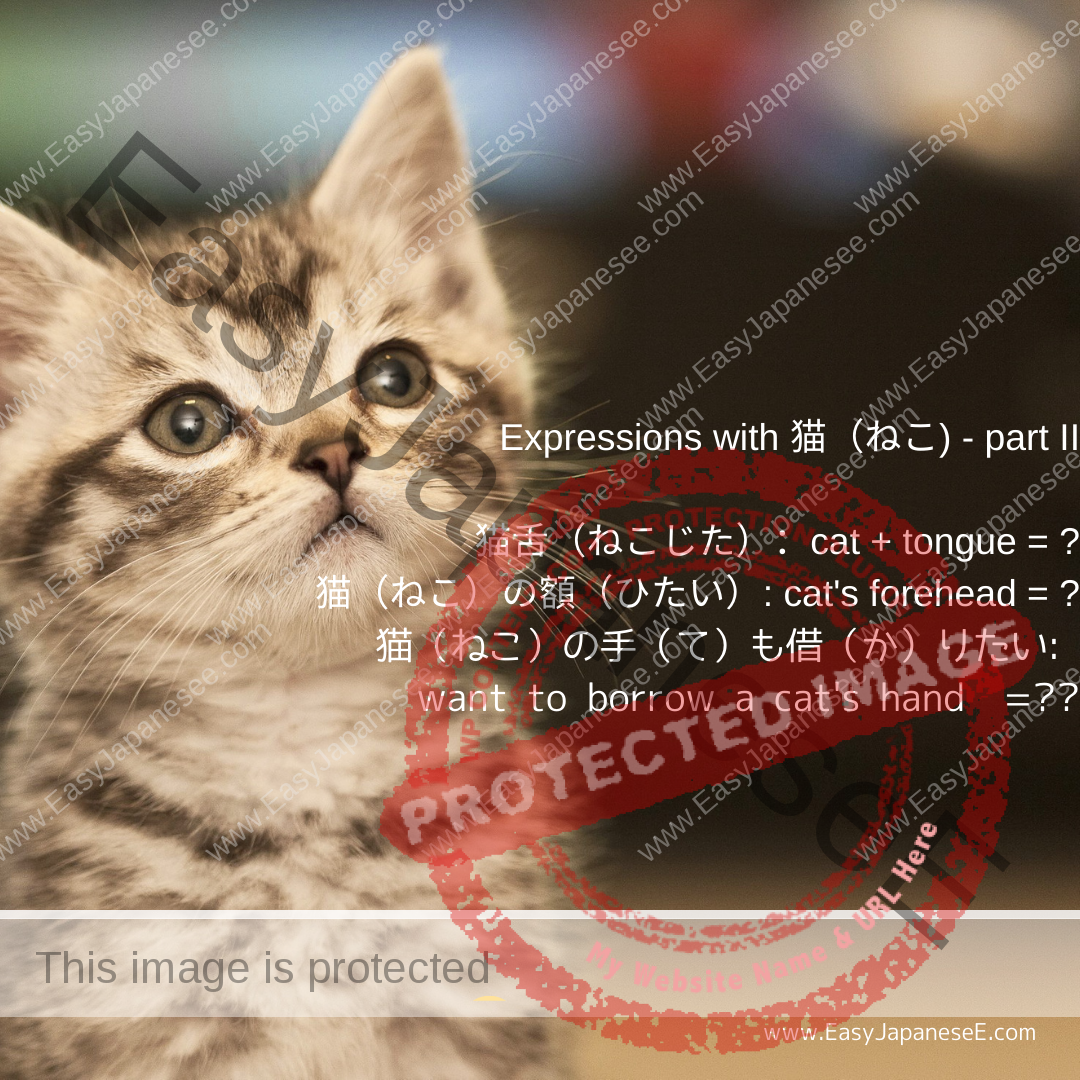
猫舌(ねこじた):cat + tongue = ?猫(ねこ)の額(ひたい): cat’s forehead?猫(ねこ)の手(て)も借(か)りたい: want to borrow a cat’s hand?? 猫舌(ねこじた):cat + tongue = an expression describing…
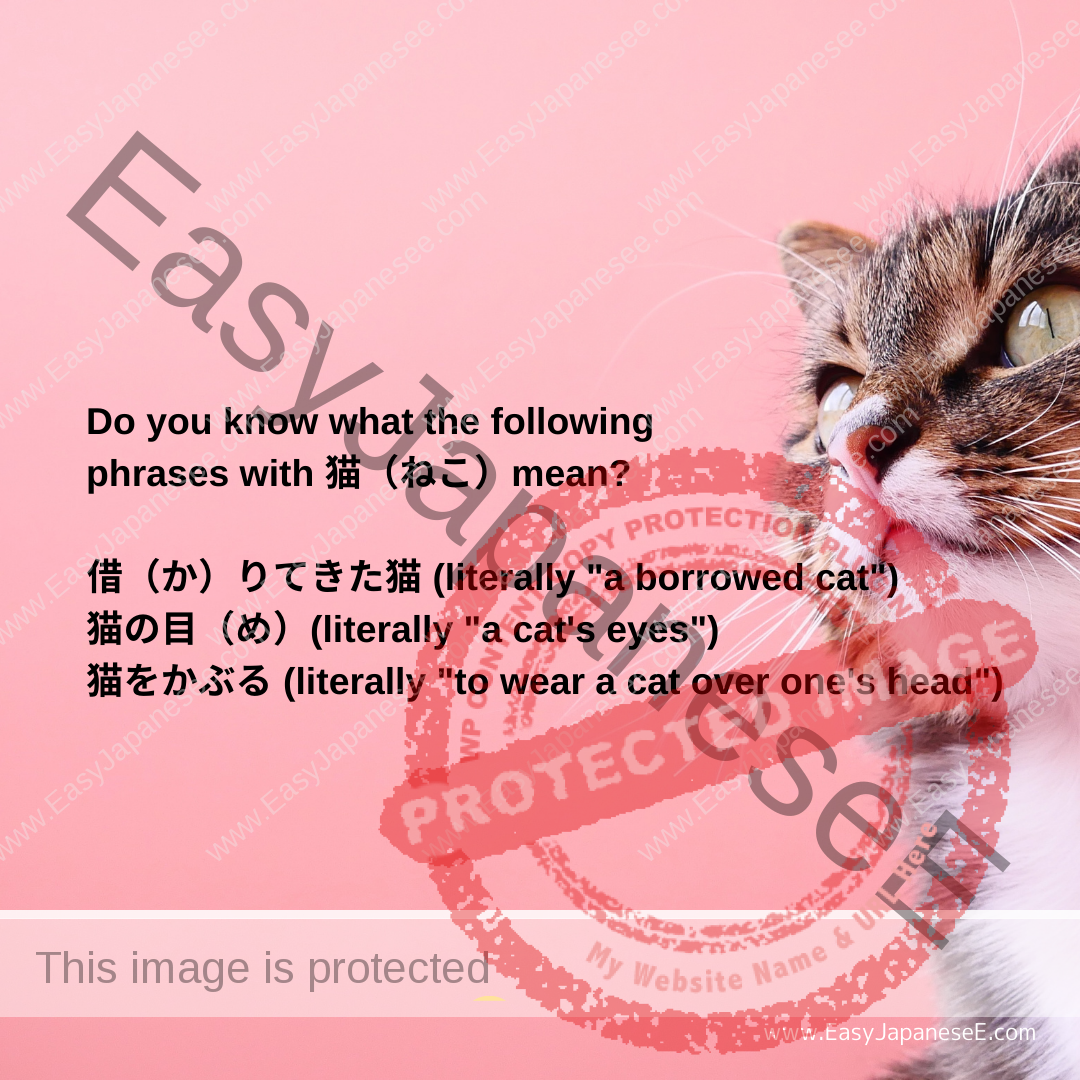
借(か)りてきた猫(ねこ) describes “meekness” うちの娘(むすめ)は人前(ひとまえ)では借(か)りてきた猫(ねこ)のようにおとなしい。Our daughter is as quiet as a lamb in front of other people. 猫(ねこ)の目(め)describes frequent changes 政府(せいふ)の政策(せいさく)は猫(ねこ)の目(め)のように変(か)わる=…
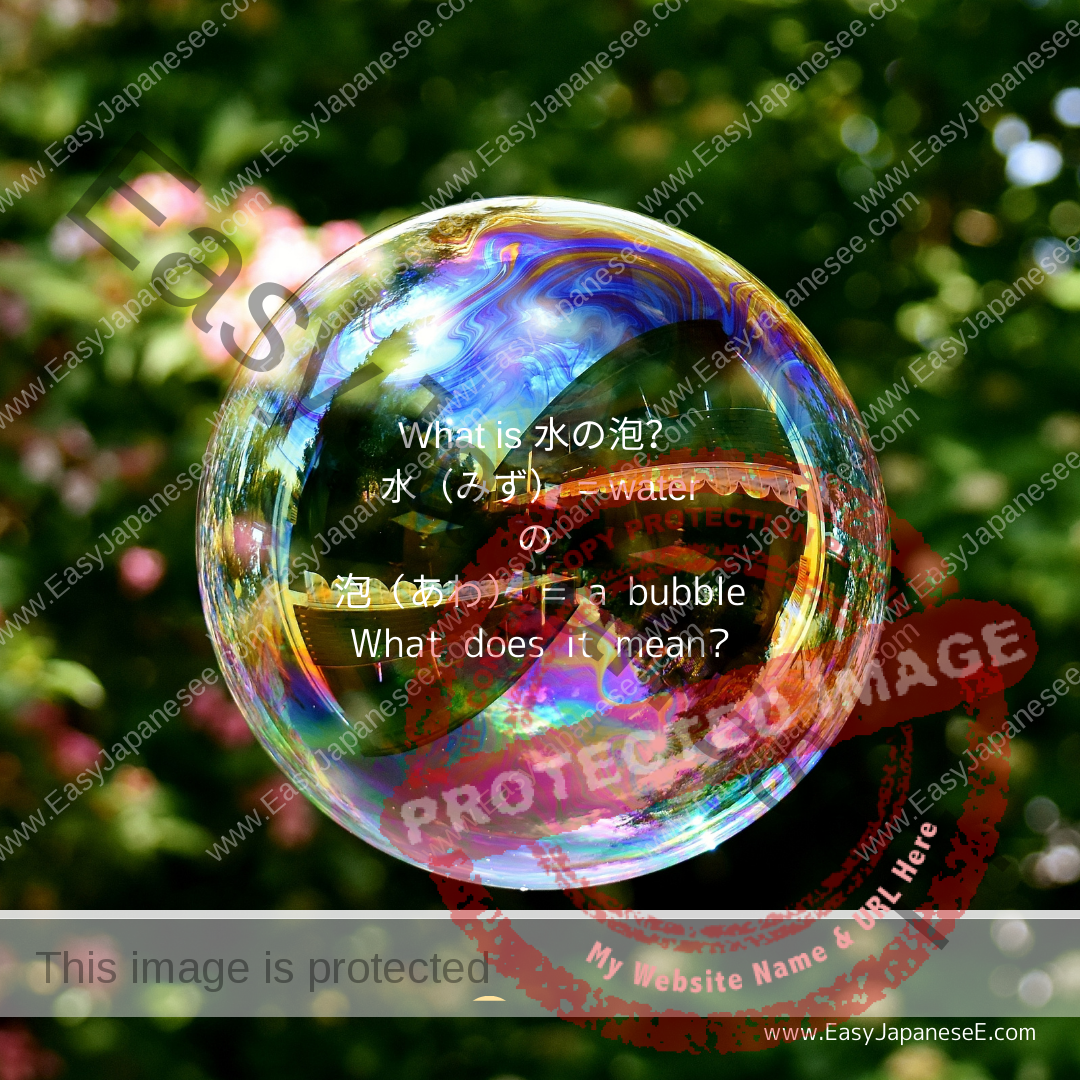
What is 水(みず)の泡(あわ)?What does that mean? 水(みず) = waterの = a particle (attribute marker, joining 2 nouns)泡(あわ) = a bubble…
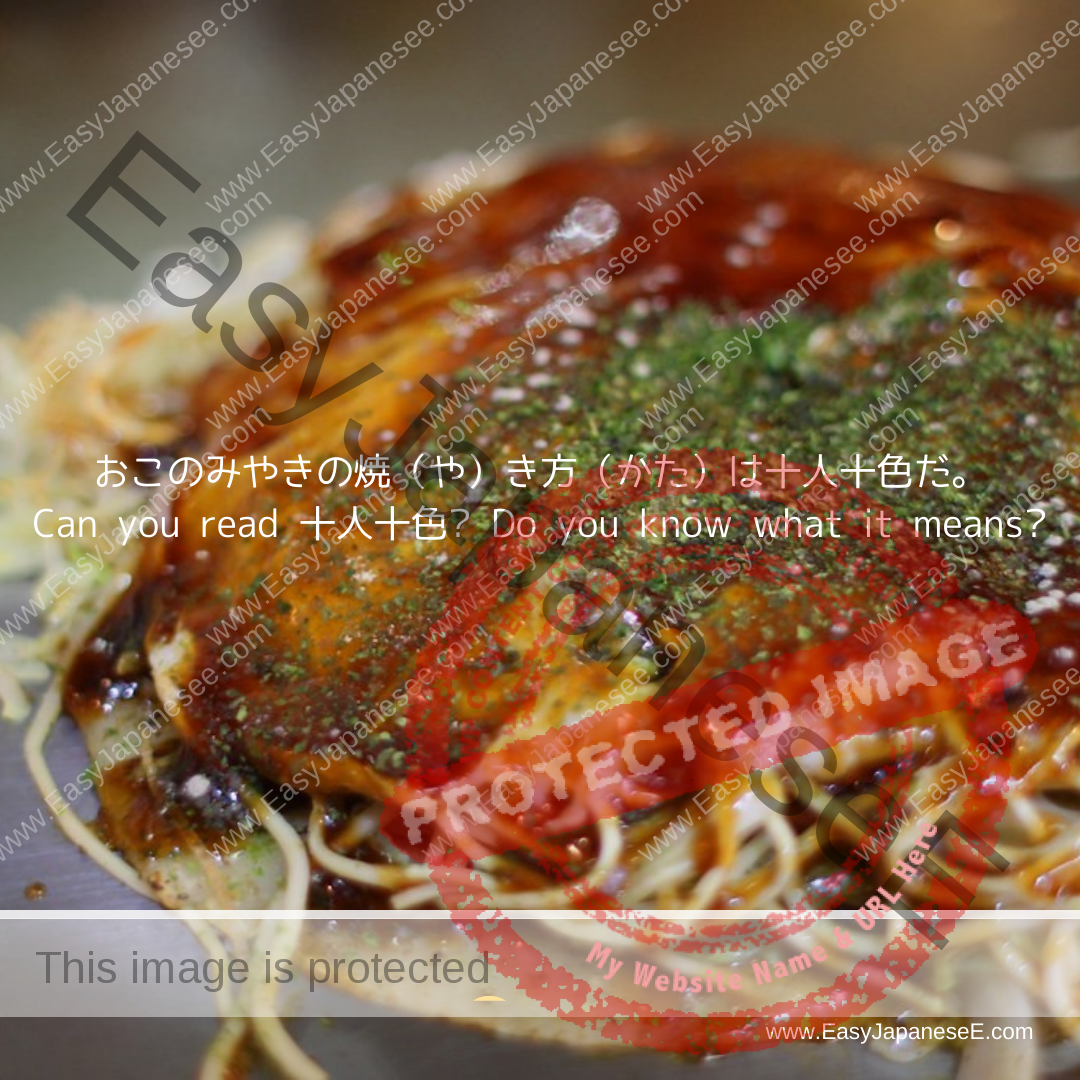
おこのみやきの焼(や)き方(かた)は十人十色だ。Can you read 十人十色? Do you know what it means? It’s read as じゅうにんといろ and its literal meaning is, “10…
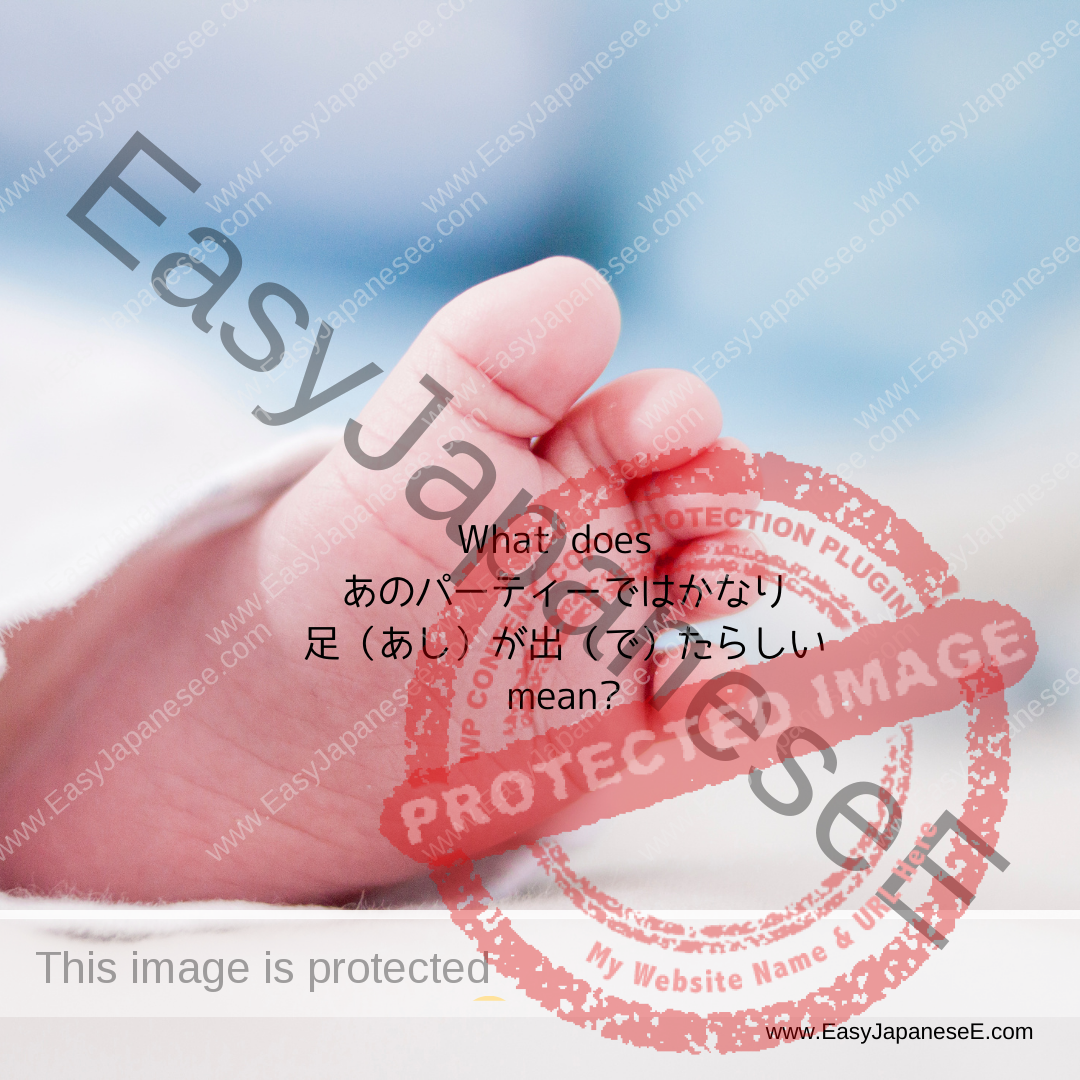
What does あのパーティーではかなり足(あし)が出(で)たらしい mean? The literal meaning of 足(あし)が出(で)る is “for a foot to stick out” but when the expression…
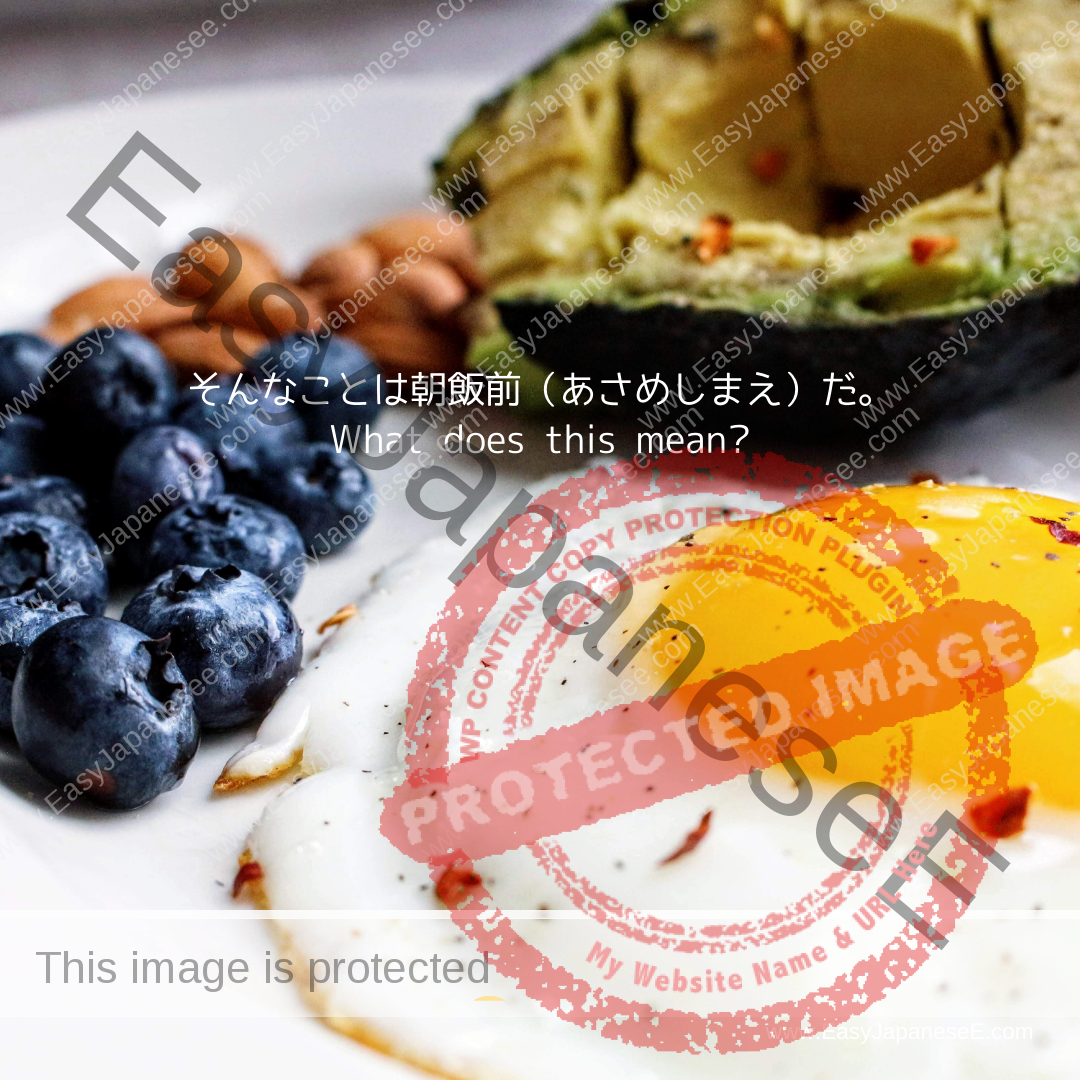
そんなことは朝飯前(あさめしまえ)だ。 朝飯前(あさめしまえ) means “something you can do even before eating breakfast,” i.e. something very easy. Something similar to “a cinch”…
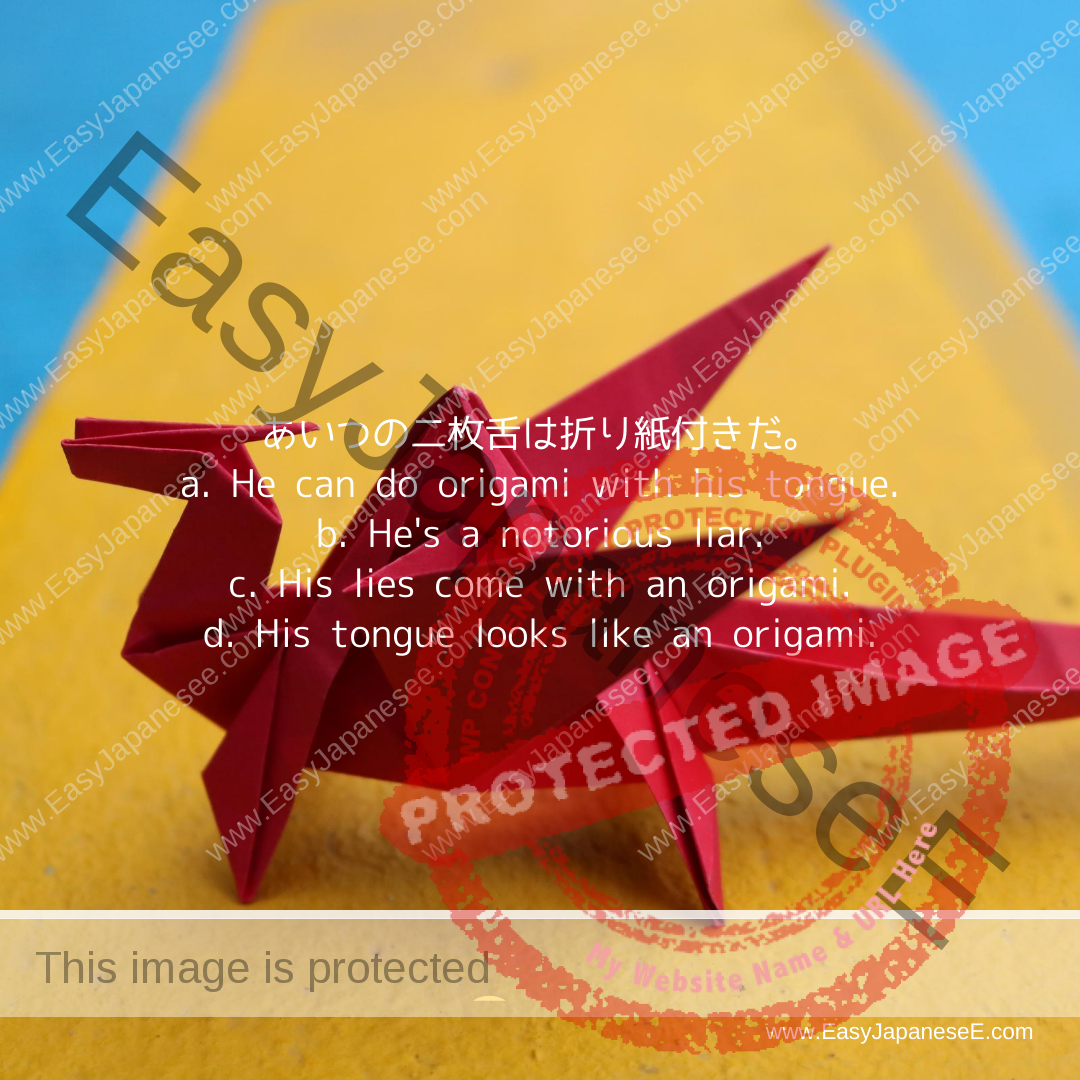
あいつの二枚舌(にまいじた)は折(お)り紙(がみ)付(つ)きだ。 a. He can do origami with his tongue.b. He’s a notorious liar.c. His lies come with an origami.d. His…
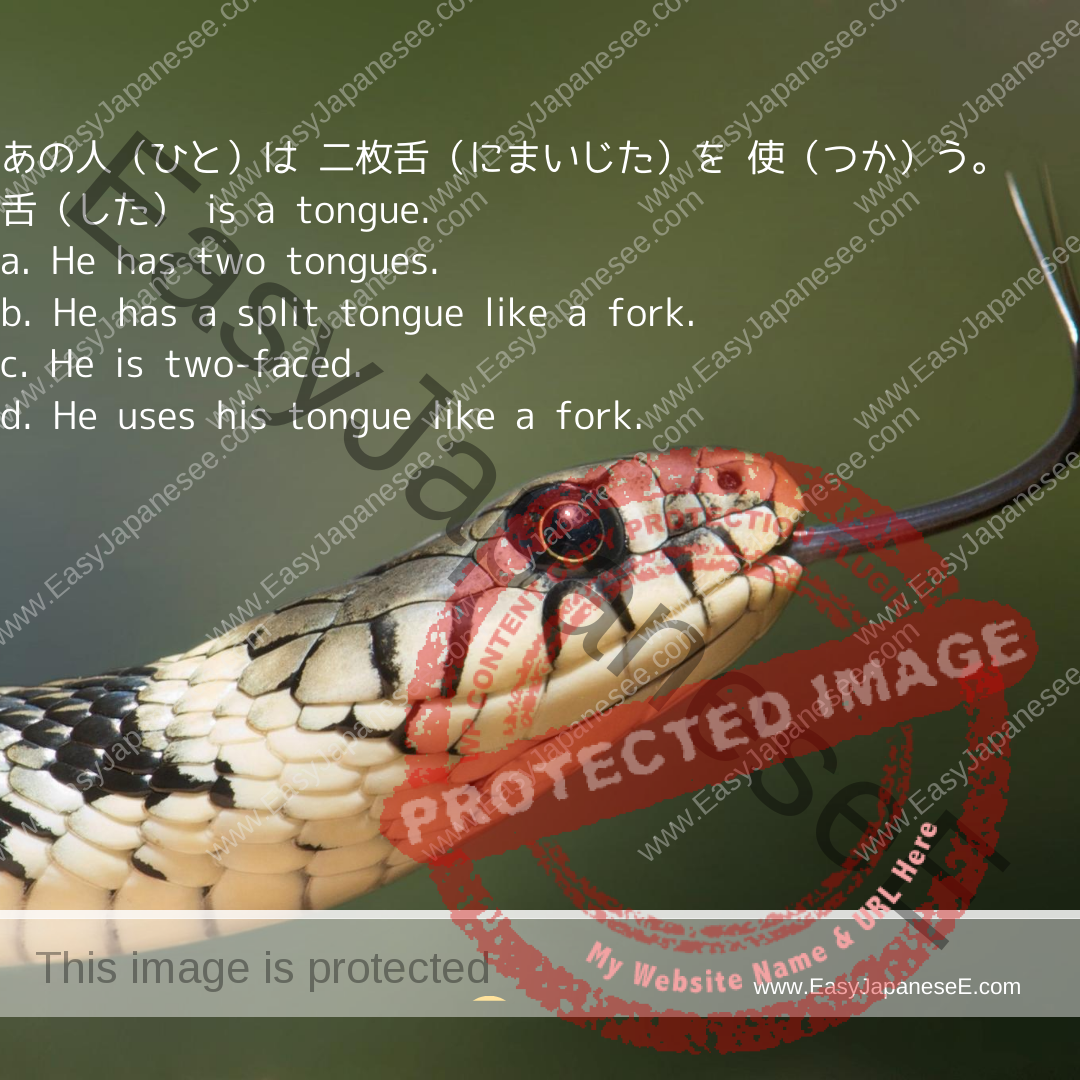
あの人(ひと)は 二枚舌(にまいじた)を 使(つか)う。舌(した) is a tongue. a. He has two tongues.b. He has a split tongue like a fork.c. He…

息子さんは、なかなかの二枚目ですね。 In kabuki, the name of the actor who acts the role of a lover (male) is/was always written on…
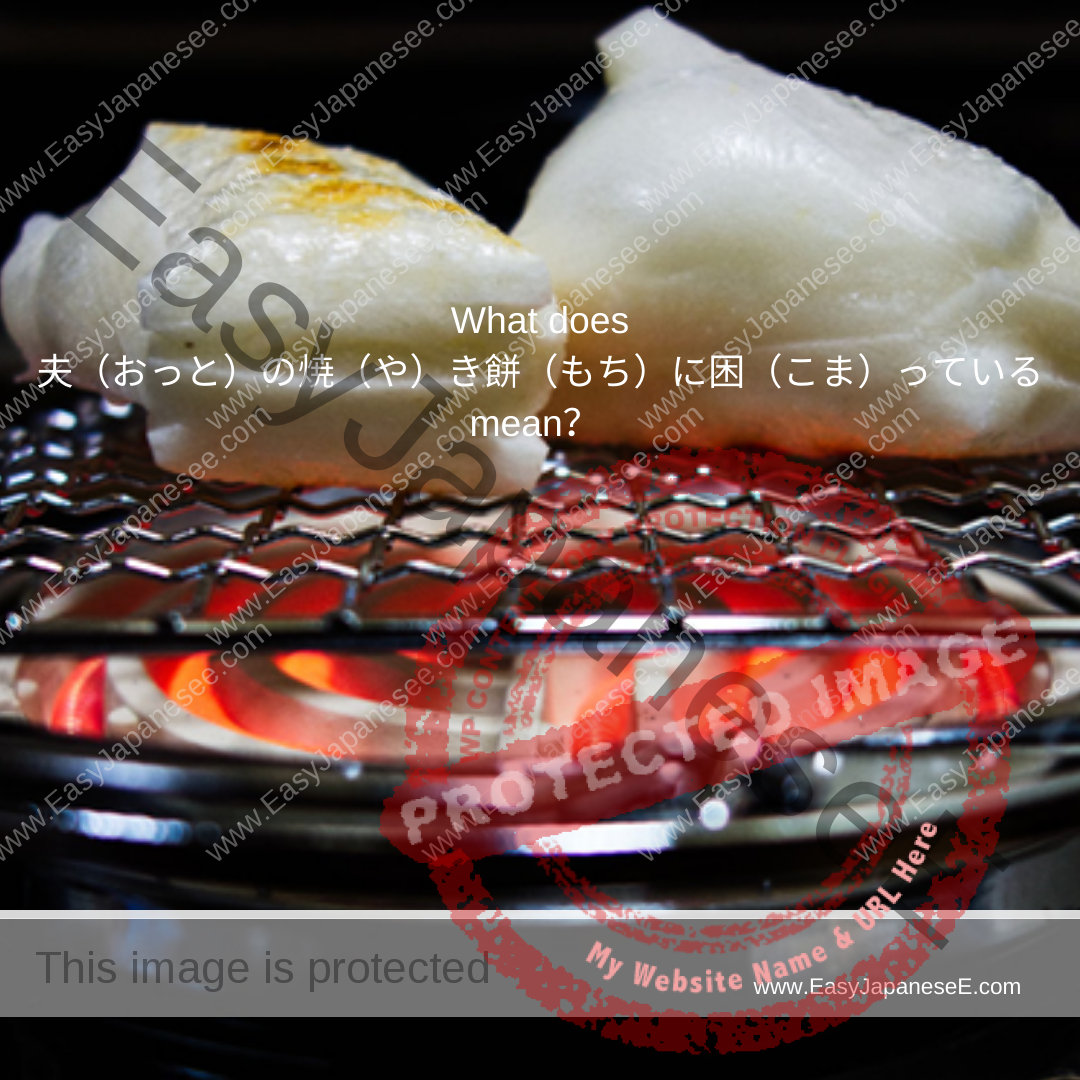
焼(や)き is a noun form of the verb, 焼(や)く = to grill and 餅(もち) is a rice cake. So 焼き餅…
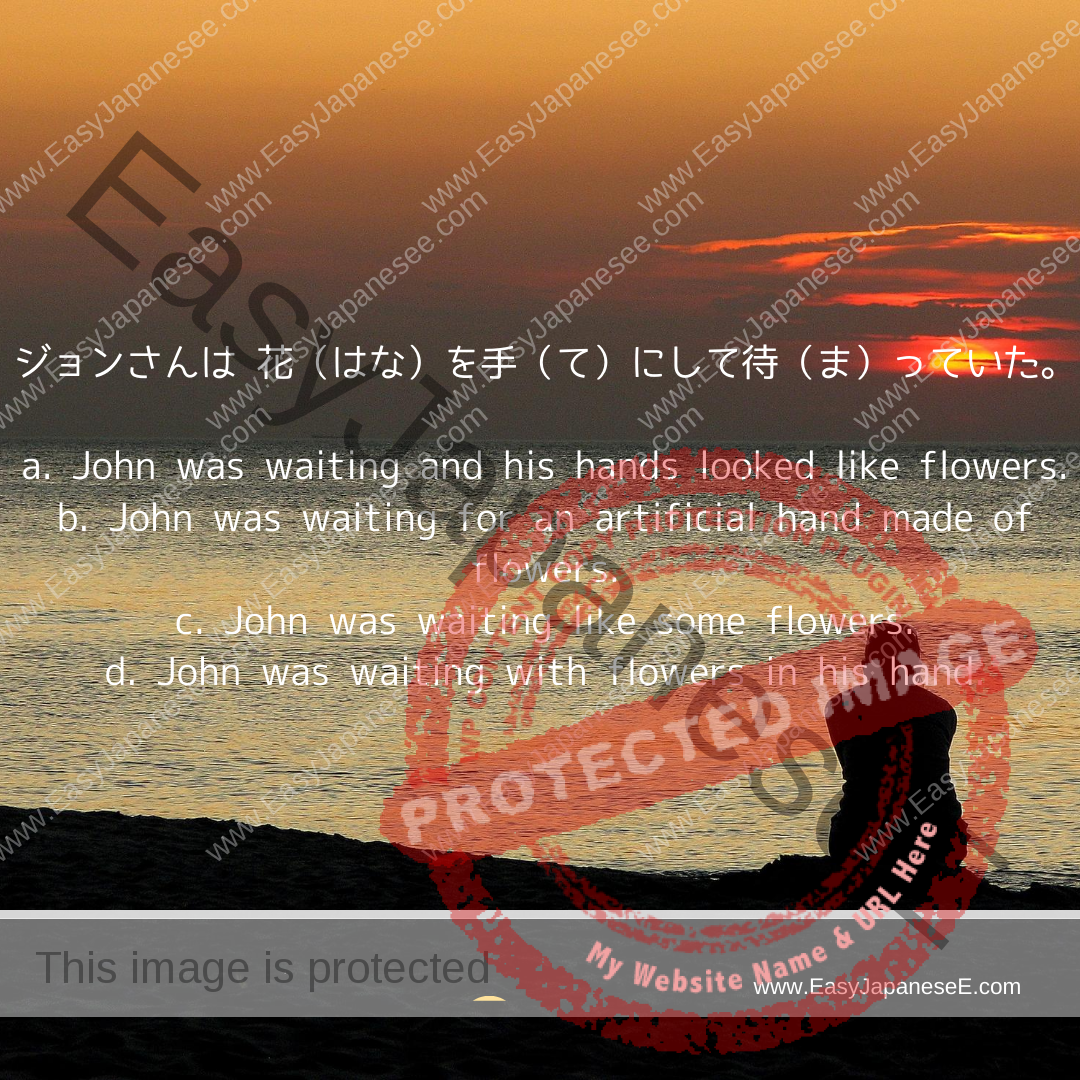
ジョンさんは 花(はな)を手(て)にして待(ま)っていた。 a. John was waiting and his hands looked like flowers.b. John was waiting for an artificial hand made…
